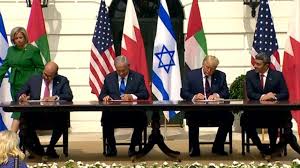The European Commission today presented its long-awaited “White Paper on European Defence” – a plan for rearmament of Europe, which the Commission calls “European Defence Readiness 2030”.
According to the document, Europe must urgently and rapidly rearmament by 2030 to have a strong defence posture and a “credible deterrent”. “We are at a crucial moment for European security and a crucial moment for action,” said EU High Representative Kaja Kalas, while Defence Commissioner Andrius Kuppilis pointed out that “if we want peace, we must prepare for war”.
According to the Defence Commissioner, the plan has four main priorities:
1. The first is to increase defence spending. The Commission presented the “ReArm Europe” plan two weeks ago to mobilise €800 billion in investment in European defence. This plan includes a new instrument – called “SAFE” – that can quickly provide Member States with €150 billion in loans for defence investment.
At the same time, the Commission is proposing to activate the so-called “National Escape Clause” to give Member States more flexibility to spend more on defence without breaching the budgetary rules that limit the deficit to 3% of GDP. This has the potential to mobilise additional defence spending of up to 1.5% of GDP, or around €650 billion over the next four years. At the same time, the Commission is working to mobilise private financing – either from the EIB or the capital markets.
2. The second priority is to close the gaps in Europe’s defence capabilities by 2030, which should be done “in a European way”, as the White Paper points out. This means “large-scale, pan-European cooperation” to address gaps in priority areas such as military mobility, investment in air and missile defence, artillery systems, ammunition and missiles, drones, the use of military artificial intelligence or quantum computing, etc. Today, the majority of defence investment is going outside Europe and this trend must change, starting with investment in Europe, the White Paper points out.
3. The third priority concerns strengthening Europe’s defence industrial base. Today, it still has structural weaknesses: it is not yet able to produce defence systems and equipment in the quantities and speed needed by Member States and remains too fragmented with dominant national players supplying domestic markets. According to the Commission, companies need a steady flow of multi-year orders to drive their investments. To this end, a “European Military Sales Mechanism” will be created, as the Commission President has stated.
4. The fourth and “most strategic” priority for European defence is Ukraine. As the Commission President has stated, “we must make Ukraine strong enough – like a ‘steel hedgehog’ – to be indigestible to a potential invader.” The EU has already invested around €50 billion in military support and has trained more than 73,000 Ukrainian soldiers, while support for Ukraine’s EU accession perspective remains strong. The Commission announced that a joint Task Force will be set up with Ukraine, which will coordinate EU and Member States’ military support. The aim is to invest in Ukraine’s defence and military capabilities and to accelerate the integration of its defence industry into the European defence equipment market.
Security through partnerships
Through the White Paper, in the paragraph “Enhanced security through partnerships”, the Commission leaves the door open to partnerships with third countries. This includes Turkey, which is also mentioned as a potential partner in these defense initiatives, subject to respect for the decisions of the European Council of April 2024. Potential partners are also considered to be Britain, Canada and Norway, as well as all “like-minded Europeans”, the Enlargement countries and neighboring countries.
In particular, for Turkey, the following is mentioned:
“Turkey is a candidate country for EU membership and a long-term partner in the field of the Common Security and Defense Policy. The EU will continue to engage constructively to develop a mutually beneficial partnership in all areas of common interest based on an equal commitment on the part of Turkey to pursue a path of cooperation on all issues of importance to the EU, in line with the conclusions of the European Council of April 2024.
In general, it is noted that “security challenges often have global implications, requiring international cooperation”, that “Russia’s full-scale war against Ukraine has wide-ranging repercussions beyond Europe” and therefore, “cooperation with partners is crucial to address European defence challenges and to diversify suppliers and reduce dependencies”. It is also noted that “NATO remains the cornerstone of the collective defence of its members in Europe” and that EU-NATO cooperation is an indispensable pillar for the development of EU security and defence”.







